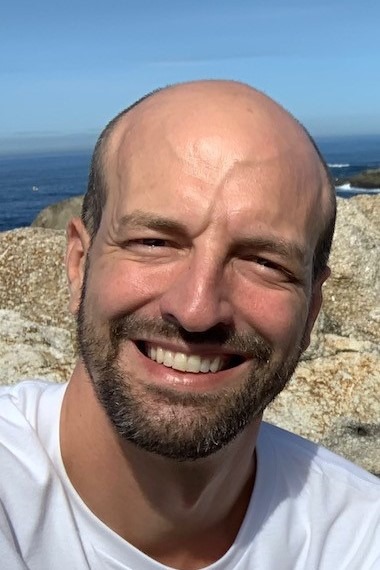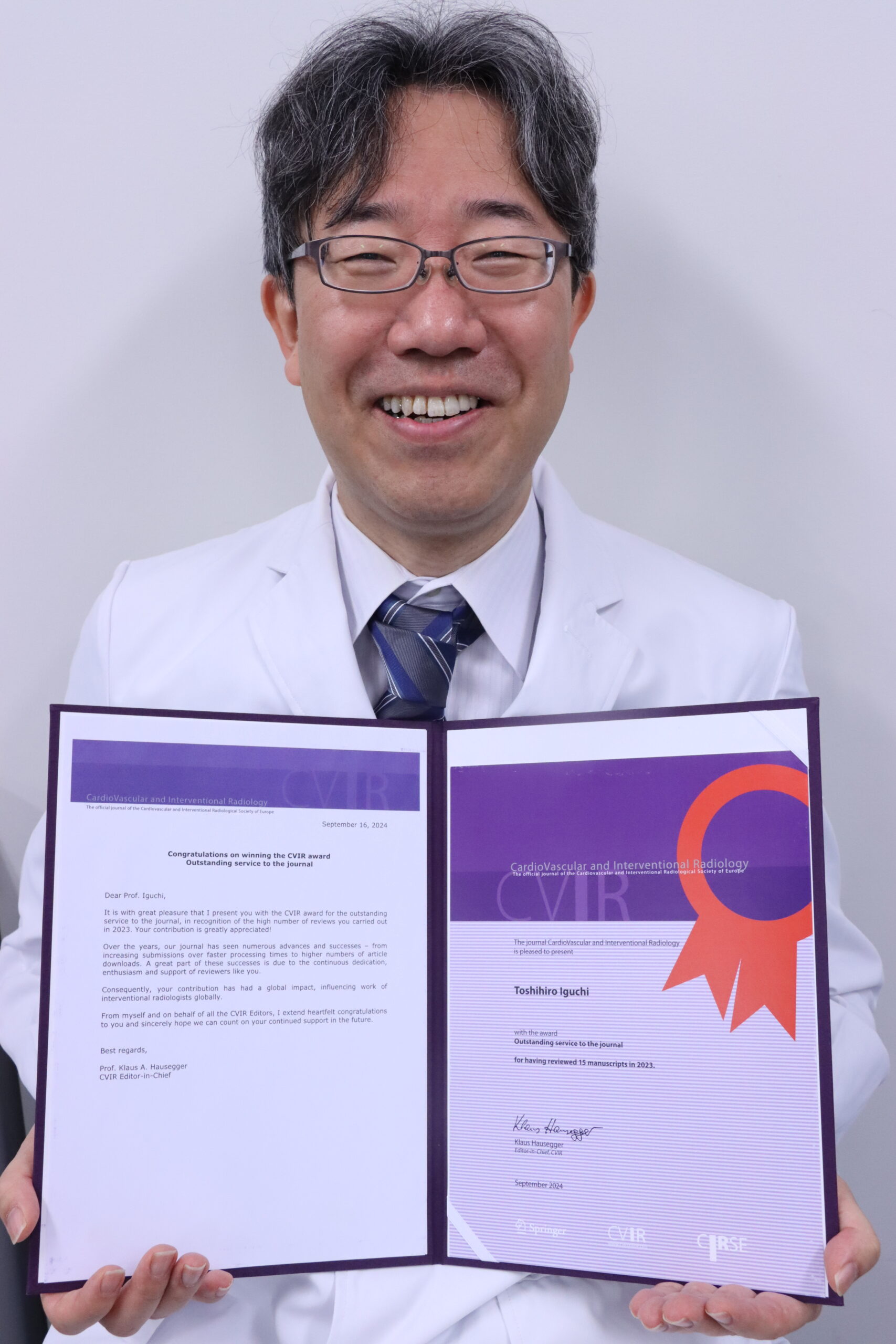Reviewing for CIRSE’s journals: Words of wisdom from Dr. Díaz-Lorenzo and Prof. Iguchi
CIRSE Insider: Why is peer reviewing important for science, research, and advancing the field of IR?
Díaz-Lorenzo: A few years ago, I would have given a textbook answer. Today, I’m fully convinced of its importance. Since I began reviewing for CVIR, I’ve gained a deeper appreciation for the “hidden” value of the reviewer in the editorial process. When a reader engages with an article, whether consciously or not, they are already forming an opinion about it. Peer review serves to enhance the manuscripts submitted by authors, refining and optimizing them to ensure that the material reaching the reader is engaging, relevant, and of the highest scientific quality, all while aligning with the journal’s editorial standards and meeting the reader’s expectations.
Iguchi: I believe that peer review is a scientific dialogue between authors and reviewers. Through objective and impartial reviews by experts in the same field, submitted manuscripts are rigorously evaluated, some errors and weaknesses are identified and corrected, and the reliability of research results is strengthened. In short, peer review improves the quality, objectivity, and reliability of authors’ scientific work. In the field of IR, many reports on new techniques and results of new treatments are submitted and published every day. Peer review plays an important role in refining them and ensuring that they are based on scientific evidence rather than subjective impressions. I believe that peer review facilitates the dissemination of evidence-based research and contributes to the advancement of IR.
CIRSE Insider: What motivated you to become a reviewer for CVIR or CVIR Endovascular? What do you find most rewarding about reviewing?
Díaz-Lorenzo: A few weeks after passing the EBIR exam, someone from CVIR offered me the opportunity to become a reviewer for the journal. Until that day, my experience with editorial work had been minimal but I decided to give it a try. I approached my first review with a sense of responsibility, reviewing my comments countless times before submitting them. Since that first experience, the question, “Who am I to evaluate someone else’s work?” has lingered in my mind. I must admit, at first, that “someone” felt a bit overwhelming.
However, over time, I’ve realized that what I’m truly assessing is the work of that “someone.” Some manuscripts are beautifully crafted, while others require polishing to shine. Thanks to the blind review process in CVIR, that “someone” remains unknown. Yet, striving for quality and offering constructive feedback brings me great personal satisfaction. The more you immerse yourself in the process, the more you reflect on that unseen author — the effort they’ve invested and how, with just a few suggestions, their work could reach its full potential.
Iguchi: I became a reviewer of CVIR to support outstanding research and contribute to the development of IR by improving submitted manuscripts through my review. It is very rewarding to know that my comments and suggestions can improve the quality of submitted manuscripts and help disseminate new knowledge worldwide. Another great attraction of being a reviewer is that I can keep up with the latest research trends and participate in academic discussions with other researchers. I feel that the process of understanding and scientifically evaluating new knowledge helps me to grow as a clinician and researcher.
CIRSE Insider: How has being a reviewer for CIRSE journal(s) contributed to your professional growth and expertise? Can you share a memorable experience when reviewing a manuscript for CIRSE journal(s) had a positive impact on your own research or clinical practice?
Díaz-Lorenzo: With every review I conduct, I learn something new. I have the privilege of evaluating the ideas, work, and techniques of many colleagues who share the same passion and concerns I experience every day when I walk in and out of my hospital. After many years in this profession, I’ve yet to meet an interventional radiologist whose eyes don’t light up when hearing about a new technique or discovering the results of a study that catches their interest. I get a sneak peek into those moments.
Of course, I’ve had memorable experiences reviewing manuscripts for CVIR, some of which are anecdotes I can only share in very close circles. And while it may sound a bit self-indulgent, there’s something incredibly rewarding about seeing a published article make an impact, knowing that my suggestions helped improve its quality.
Many of the articles published in CVIR have been invaluable in my daily practice, not just the ones I’ve personally reviewed. Clinical research, technical notes… we all contribute to the innovation in our field. Getting a firsthand look at the ideas of other interventional radiologists is truly fascinating.
Iguchi: Through reviewing for CIRSE journal, I have improved my ability to read manuscripts more efficiently and to evaluate research more objectively. Additionally, I have improved my ability to identify both the strengths and weaknesses of submitted manuscripts. Currently, there are so many journals and many articles are submitted, and as result, there are not enough reviewers, and reviewers cannot spend time on submitted manuscripts that they are not interested in. Therefore, I also understood that the “Title” and “Abstract” play a very important role in peer reviewing. If they are poor quality, reviewers may not be very interested in the submitted manuscript. One of the greatest benefits of being a reviewer is that I can keep up with the latest trends in IR, including many things I don’t know yet. The insights achieved through peer review not only improve the quality of my manuscripts and research but also significantly contribute to my own professional growth. Furthermore, by analyzing how other authors structure their manuscripts, I have achieved a deeper understanding of research methodologies, which has improved my own writing and scientific approach. The experience of reviewing has reinforced the importance of critical evaluation and has helped me become a more effective researcher and author.
CIRSE Insider: What advice would you give to someone considering becoming a reviewer for the first time?
Díaz-Lorenzo: Before becoming a reviewer for CVIR, I thought editorial work was boring, something only the smartest in the room would engage in (and I certainly didn’t consider myself one of them). I accepted my first review just to give it a try, and as I got to know the process better, I realized how wrong I was. I find it incredibly exciting now, and that’s what I try to convey to those around me. Anyone can give it a try.
Having some basic knowledge of editorial work and understanding the types of articles you’ll be reviewing is key. You don’t need to be an expert from the start. Little by little, you begin to recognize the structures you need to focus on, and before you know it, you’ve built a mental template that helps you review more efficiently. It’s all about being consistent and accepting reviews regularly. With experience, you gain confidence and improve the quality of your feedback.
Iguchi: For a first-time reviewer, it is important to eliminate personal bias and conduct an objective and fair evaluation of the manuscript. He/she does not need to build own barriers or make the threshold too high for a first review. I think that reviewers’ suggestions and comments on previous papers he/she has submitted can be very helpful. If a submitted manuscript has potential for acceptance, the reviewer should strive to provide constructive feedback to help the authors improve the quality of the manuscript. Peer review is not only an evaluation process. It is also a valuable learning opportunity for the reviewer. It offers the chance to discover new knowledge, and reviewers should approach the process with curiosity and enthusiasm, researching topics as needed. As I have mentioned many times, by participating in peer review, reviewers can contribute to the development of IR while simultaneously enhancing their own knowledge and expertise. Let’s enjoy reviewing!
CIRSE Insider: How do you balance your reviewing responsibilities with your clinical and research work?
Díaz-Lorenzo: It’s true that everything in life requires dedication, and you have to make time for it. At first, it takes significant effort, as the lack of experience and the need to catch up on certain topics can be time-consuming.
However, once you get the ball rolling, invest time in learning about editorial work, and observe how other reviewers and editors approach their tasks, the time commitment becomes more manageable. You go from spending 7-9 hours per manuscript to 2-4 hours, depending on the type of article. A technical note, for example, doesn’t require the same effort as a meta-analysis.
During busy periods or when you’re focused on your own research, you can always decline a review. Personally, I always try to make room for it… except during summer vacation, of course!
Iguchi: Balancing peer review with clinical and research activities requires effective time management. It is important to prioritize tasks based on deadlines and importance. When I receive a review request from CVIR, I never decline it. It is a great honor to be selected as a reviewer because I consider it a recognition of my work. Upon accepting, I first do a quick read and determine where it fits within my workload priorities. With our busy schedules, it is challenging to find time for peer review. However, I routinely read papers during my commute time on the Shinkansen and before going to bed. When I receive a review request, I also use these times to complete the work in a timely manner. When I reject a submitted manuscript, I try to finish the review early so that the authors can start preparing the next submission sooner. My goal is not to view peer review as a mere obligation, but to make it a daily routine.
CIRSE Insider: Why should other professionals in IR consider becoming reviewers for CIRSE’s journals?
Díaz-Lorenzo: There are many ways to contribute to the evolution of a fast-paced specialty like ours. Being a reviewer allows you to stay up to date on a wide range of topics and connect, even indirectly, with colleagues from the other side of the world who face similar challenges to those you encounter every day. It’s important to remember that a reviewer doesn’t need to know more about a specific topic than the author when evaluating a manuscript. Experience and knowledge are often enough to offer a different perspective and spot errors the author may have overlooked.
Over time, I’ve come to appreciate just how valuable our own experience and knowledge are. Sharing them through peer review is not only a way to give back to our community but also a way to help drive our specialty forward.
But as I mentioned earlier, it’s a very personal decision that should always be respected.
Iguchi: Summarizing the points discussed so far, I believe the main reasons why professionals in IR should consider becoming reviewers for CIRSE journals are:
- Peer review helps reviewers grow as researchers and clinicians.
- Reviewers can contribute to the development of the field of IR.
- Reviewers stay up to date on the latest research trends and developments.
- It enhances reviewers’ ability to objectively and critically evaluate research.
Therefore, I strongly encourage more IR professionals to take on the role of a reviewer!


